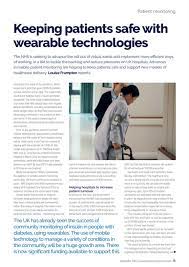Retirement isn't just about enjoying the fruit of your years of hard work. It's also about navigating a new way of life with its own unique challenges and opportunities. Today, we'll look at some of the essential skills you'll need to make the most of your retirement years.
Financial LiteracySince retirement brings a significant change in your income, managing your finances becomes crucial. Understand the concepts of inflation, interest rates, and how taxes affect your financial decisions. Do you need help? Consider consulting a financial advisor to help you navigate your way through.
The first skill on our list, is an absolute must-have in your retirement toolkit. In the simplest terms, it refers to understanding how money works, specifically in terms of how to earn, manage, invest, and donate it to help ensure a secure future.
The transition into retirement often comes with a shift from regular income to relying on savings, pensions, and investments. It's important to understand how to manage these resources to maintain your lifestyle and meet your needs throughout your retirement years. This includes understanding concepts such as inflation, which slowly erodes the value of money over time, and interest rates, which can affect the returns on your savings and investments.
Knowledge about taxes is equally important. Are you aware of the tax implications of withdrawing from your retirement accounts? Understanding tax laws can help you make informed decisions that minimize your tax burden and maximize your net income.
Investment is another area where financial literacy comes into play. Diversifying your investments can spread risk and potentially increase your returns. But remember, investments come with their own set of risks and it's important to understand these before making any decisions.
Budgeting is another crucial aspect of financial literacy. This involves understanding your income and expenses and planning accordingly to ensure you live within your means. This might mean cutting back on non-essential expenses or finding ways to supplement your income.
There are plenty of resources available to help improve your financial literacy, from books and online courses to professional financial advisors. It might be a good idea to consult with a financial advisor who can provide personalized advice based on your specific circumstances.
Health Management
There's a saying that if you've got health, you've got wealth. Regular exercise, a balanced diet, and frequent medical check-ups are key to keeping you in tip-top shape. But don't forget about mental health. Stay socially active, keep learning, and engage in activities that bring you joy and satisfaction.
This is a cornerstone of a happy and fulfilling retirement. It's more than just the occasional doctor's visit or taking your prescribed medications. Health management involves a holistic approach to your well-being, encompassing both physical and mental health.
Regular exercise is paramount as we age. It strengthens the heart, reduces the risk of many diseases, and can even improve your mood. Aim for a mix of cardiovascular exercises like walking or swimming, strength training for muscle and bone health, and balance exercises to prevent falls. Always remember to consult with your healthcare provider before starting a new exercise regime.
A balanced diet is another key component of physical health. Focus on whole foods, like fruits, vegetables, lean proteins, and whole grains. Minimize processed foods that are often high in unhealthy fats, sugar, and sodium. Proper nutrition can help manage weight, keep your heart healthy, and boost your immune system. It's also important to stay hydrated, especially in hot weather or after exercising.
Regular medical check-ups are a must. These visits can help detect potential issues early when they are most treatable. Make sure to adhere to recommended screenings and immunizations for your age group. Don't forget about dental and eye health, which can impact your overall well-being and quality of life.
Now, let's talk about your
Mental Health. It's just as important as physical health but often overlooked. Mental health involves your emotional, psychological, and social well-being. It's about how you feel, think, and behave. Keeping your mind active is crucial. Engage in activities that challenge your brain, like puzzles, reading, or learning a new skill.
Social connections also play a vital role in mental health. Stay in touch with family and friends. Join local clubs or community groups. Loneliness can lead to depression and cognitive decline, so don't underestimate the power of a good chat with a friend.
It's also important to recognize and deal with stress, anxiety, and depression. It's okay to seek professional help if you're feeling down or anxious. Therapists and counselors are there to help you navigate these feelings and provide you with tools to manage them.
Time Management
You've got all the time in the world now, but how you use it can greatly affect your retirement life. Establish routines, plan activities that you love, and even consider part-time work or volunteering. It's all about keeping busy and feeling productive.
It may feel like you've just been handed an abundance of free time. Without the structure of a 9-to-5 job, your days might seem wide open. But this is where time management comes in - it's all about utilizing this newfound freedom effectively to enhance your quality of life. It's about striking a balance between activities that bring you joy, provide a sense of accomplishment, and contribute to your overall well-being.
One of the first steps you could take is to establish a routine. Human beings are creatures of habit, and having a routine provides a sense of structure and normality to our lives. Your routine could include fixed times for meals, exercise, hobbies, social activities, and rest. But remember, your routine should work for you, not against you. It's not set in stone and should have enough flexibility to accommodate spontaneous plans or simply those days when you want to do nothing at all.
Consider planning your activities. Retirement is the perfect time to dive into hobbies old and new, to visit places you've always wanted to see, or to learn that skill you've always been interested in. Setting goals and planning activities around them not only gives you something to look forward to but also brings a sense of purpose and fulfillment.
While it's important to keep busy, it's equally important to make time for relaxation. Rest and relaxation are not just about sleeping or watching TV. They could also involve activities like reading, gardening, meditating, or just sitting and appreciating the beauty of nature. These activities allow your mind and body to recharge and can contribute to your overall well-being.
If you're the kind of person who enjoys staying active and involved, consider taking up part-time work or volunteering. Both options provide opportunities to interact with others, give back to the community, and maintain a sense of purpose and structure.
Remember, time management in retirement is about finding the right balance between activity and relaxation, social interactions and solitude, routine and spontaneity. With effective time management, you can create a retirement lifestyle that is not only fulfilling but also uniquely yours.
Social Skills
You're not an island, and maintaining connections with friends, family, and the community is vital. Don't be shy to join local groups or activities. Meet new people, keep old friendships alive, and don't forget to communicate openly and honestly with your loved ones. As social beings, our interactions and connections with others contribute significantly to our sense of happiness and well-being.
In retirement, maintaining and establishing social connections may become difficult. You have lost so many of your normal contacts from when you had that 9-5 job. Everyone moves on and because you are no longer a part of their scene, you are either forgotten or simply left out. It then becomes imperative that you seek out social support such as family, old friends, new acquaintances, or community groups.
However, making new connections late in life is more difficult than when you were younger. This may play a role in why there is so many retired people who are lonely. To address this issue requires that you take charge and make the first steps, which is not easy. Taking risks, like putting yourself out there, involves the possibility of being rejected or hurt. That said, there are ways you can make new friends and new acquaintances in retirement and it is up to you to do so. Regular interaction with others can keep you mentally stimulated, provide emotional support, and stave off feelings of loneliness and isolation.
To engage with new people you need to learn to express your thoughts and emotions clearly and understand those of others. Good communication builds friendships that are meant to last. Listen to what other are really saying. Speak up about your feelings and your thoughts when asked. By doing so, you will find your new "tribe" that will be your social net during retirement.
Lastly, don't be afraid to step out of your comfort zone. Join clubs, participate in community events, volunteer, or even try out social media platforms. Each of these activities presents opportunities to meet new people and build new relationships.
Adaptability
Change is your new best friend, and it is the only constant in life, with retirement being a major one. Whether it's adapting to a new budget, moving homes, or dealing with changes in your health or family situation, being flexible and open to change is key.
With retirement comes so many changes all at once and you may feel overwhelmed at first. Step back and take a deep breath. You don't have to decide or change everything all at once. You can make gradual changes over time to allow your mind and body to adjust to this new part of your life. Only with adaptability can you get through all the changes. Remember that you have overcome mountains of issues in your life; you certainly can run up this hill.
Lifelong Learning
Never stop learning. Keeping your mind active and moving is tantamount to surviving retirement. Now that you have extra time, why not do some of those things you have on your list that you could never get around to? Ever wanted to learn a new language or pick up a musical instrument? Now's your chance! Keeping your brain active and engaged can contribute greatly to your overall happiness and fulfillment.
There are so many opportunities available for you to learn new things. With the internet, you can find just about any learning you may require. Learning to play and instrument? Check out YouTube videos until you have the basics and then find a teacher in your area. Always wanted to speak French? There are so many language learning apps that you can do it now. There really is no limit to the things you can do in retirement if you simply go out and do it.
So, there you have it. Retirement is a journey, not a destination, and the path you carve is entirely up to you. Make sure to pack these essential skills in your retirement toolkit and remember, the best is yet to come!
























